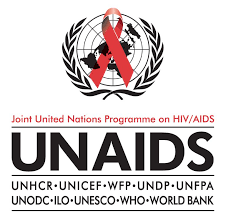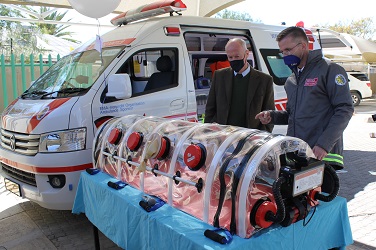
UNAIDS Namibia donates hygiene packs to people living with HIV

UNAIDS Namibia recentlyfacilitated the distribution of hygiene packs to people living with HIV (PLHIV) and key populations, including prisoners, within vulnerable communities.
This was implemented in partnership with World Food Programme (WFP), UNODC, and local CSOs that work with PLHIV and key populations to enhance sanitation for COVID-19 prevention in rural communities and prisons.
UNAIDS Namibia received the donation of 10,000 hygiene packs valued at N$1.3 million from Reckitt Benckiser who have joined forces to distribute more than 195,000 “hygiene packs” to PLHIV in the Eastern and Southern African (ESA) region.
UNAIDS Namibia Country Director, Dr. Alti Zwandor said that although the donation is a very small drop in the ocean compared to the estimated needs, she believes it will go a long way in addressing the personal needs of people living with HIV during the Covid-19 pandemic.
Receiving the hygiene packs donation on behalf of the Ministry of Health and Social Service, Executive Director Mr. Ben Nangombe expressed gratitude to UNAIDS and other development partners in Namibia for complementing the government’s effort in fighting COVID-19, adding that Namibians should continue to adhere to the guidelines in places and encourage them to join hands and support each other to protect communities from COVID-19.
Namibia has an estimated PLHIV population of 210,000 where 197,000 PLHIV are on Antiretroviral (ARV) treatment.
The current evidence shows that people living with HIV experience a slightly higher COVID-19 mortality as many people living with HIV are ageing and might have other health conditions. These include tuberculosis (TB), heart disease, or lung disease, which are known to make people susceptible to more severe COVID-19 symptoms. According to the UNAIDS Namibia PLHIV rapid needs assessment conducted in April 2020, 80% of people living with HIV expressed concern that they did not have personal and household protective equipment against COVID-19.











































